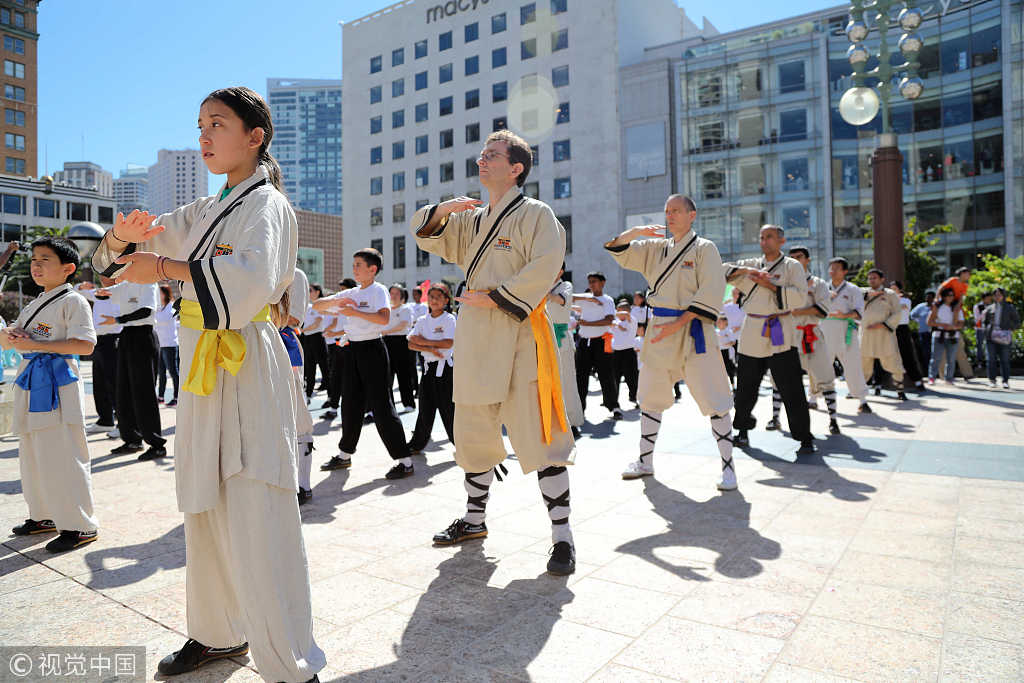Qigong smooths road to recovery


With a badge reading "I'm Cancer Free" on his chest, Ken Adler headed to the middle of the room with six other elderly people.
They moved through a series of slow-motion exercises as mood music played in the background.
"Feet on the ground, look forward, unlock your knees," Edith Chiang, the instructor of the qigong class, said as she demonstrated the movements.
The qigong program was being offered by the oncology department of the Palo Alto Medical Foundation free of charge to the public. Most of the participants were patients receiving treatment and not capable of much movement.
"Qigong is an ancient Chinese form of exercise, which enhances the circulation of qi, or life energy. In traditional Chinese medicine, when qi flows freely in a balanced fashion, health is restored and disease is prevented," said Chiang.
Chiang has been teaching qigong in the Bay Area for more than 10 years at major hospitals, including Keiser Permanente, Palo Alto Medical Foundation and El Camino Hospital. More than 500 people have attended her classes.
Many of the participants turn to qigong as an alternative recovery therapy when conventional medicine fails to produce satisfying results, she said.
"For someone who's going to cancer treatment, the treatments are harsh, to say the least. And it just wreaks havoc on a person's body. This is a way of exploring your body's sensations in a more pleasant and affirming way," said Adler, a trainer in Live Strong Live Well, a strength and fitness training program for cancer survivors.
He introduced qigong to his program and the participants "love" it. It provides a different way of thinking about strength training, he said.
"Keeping people motivated, encouraging them to stay the course even when they feel the awful effects of the treatment-these are important elements of emotional and psychological endurance training for our participants," Adler said.
































